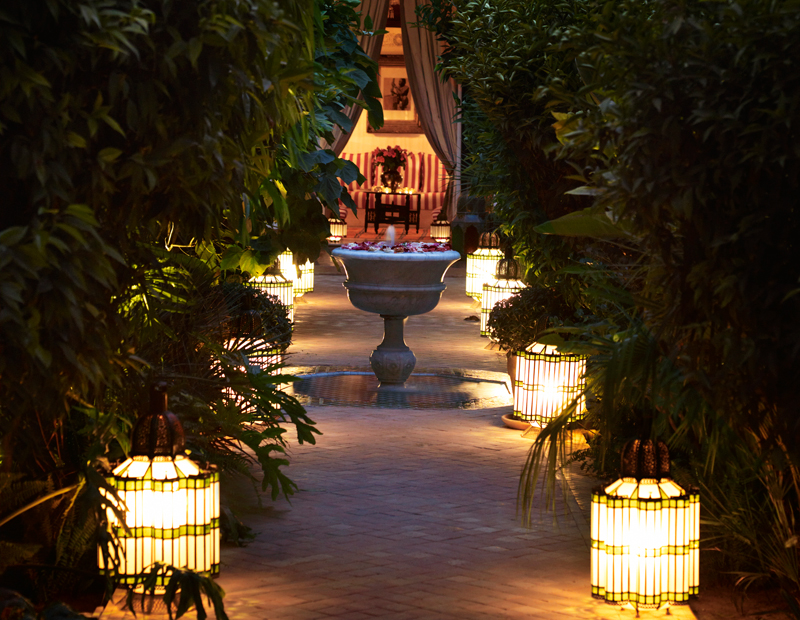“A jug of wine, a loaf of bread, and thou. The world is paradise enow.”
-Khayyam
A cult of ugliness subsumes man’s instinct for meaning. Placing beauty at the center of effort is the greatest defense of our civilization.
Since 1917, a cult of ugliness has emerged to subsume man’s instinct for meaning. This cult is all around us. And one deeply tires of its negativity and tone of incessant rejectionism. One is not on this plane for very long. We have the obligation to find the things we love, not just the things we reject. For it is an insidious aim of the cult of the ugly, the cult of the state, of politics, to rip us from our sovereign destiny and to dwell upon the things we reject. One senses that this cult of ugly, statist rejectionism possesses at its root the aim to destroy one’s dharma, one’s sense of meaning, one’s relationship to the vivid immediacy of the “Now,” and the sense of transcendence possible therein, and thereby make one a slave.
Meaning, on the other hand, is the guidance system of all human triumph and creative progress.


Creative productivity is a beautiful and noble act. There is no greater act of defiance of the ideology of Luciferian deconstructionism than to create beauty. No greater vivifying. Beauty contains both originality and ancient, axiomatic truthfulness. It also embodies the irreducible element of love to spur earnestness and discipline in creation. Earnest discipline likewise implies the irreducible element of self-ownership and freedom. These Promethean traits must be celebrated and articulated as global trade, finance, technology and military paradigms are reconfigured. Beauty is the singular antidote as the neo-Marxian zeitgeist of the Information Age triggers a deeper and deeper brutality and violating of our primordial guidance systems. Placing beauty at the center is what gives us nobility in our purpose, which we will need more than ever in the decades to come.
Humans seek consolation. We are the only animals that seek this peculiar, abstract kind of home. Other animals’ needs are limited to food, shelter, warmth. What is this strange extra thing we yearn for? It isn’t simply physical comfort or a therapeutic stirring of our emotional batter. It is a sense of being fully at home in the world. That we spend so much of our time seeking consolation also seems to say that in much of our lives we are not fully at home.
We seem to spend so much of our lives wondering that we are detached from what we truly are, sundered from our nature and the world in which we live. All that struggle we went through to maintain ourselves as individuals. To show off to one another. To pursue individual pleasure and generate individual success.
But all these pursuits put us at variance with ourselves, even if they also tend to inspire us.
We have a need to come back to who we truly are and rest there. A kind of transcendental homecoming. Homecoming from all the bittiness and fragmentariness of our ordinary experience. Some condition of peace and reconciliation with the world and with each other that we don’t normally possess. Experiences of homecoming are incredibly important to us. They give us the sense that after all, it was worthwhile.
In the ugly cult of 1917, this was called “alienation,” which only acts of institutional violence against the unarmed could ameliorate. Yet after a 20th century of democide the likes of which the world had never seen, and the casually-celebratory emblems to this democide erected in architecture and pop music all around us even today, the sense of sundered fragmentariness within us is only that much more profound.
We have a natural religious longing, a romantic longing, and a longing for mystery which remains despite the post-industrial zeitgeist of ecological, sociological and informational planning. There is still an ancient desire to establish a connection with something that is not just me, and not just you, but with a thing which comprehends us both. With a community that is somehow beyond the living, which enrolls us in the entire epoch of the species. Including those past and those yet unborn, where the kitsch of post-modern narratives is dissolved.
In the digitization of our lives, the breakdown of paradigms, we are nomad-ized.
We move from thought to thought, emotion to emotion, relationship to relationship with a kind of detached casualness. There is a yearning for them all to stop. For us to step back, gewöhnen, “to dwell in place”. Our sense of the divine is a recognition that we don’t posses the ability to create this on our own. The sense of connection isn’t created today, or by us, but is inherited and passed on. It is a primary element, like gravity or tathagata. The tragedy of our century is we have lost the habit of inheriting it and therefore of passing it on.
We no longer dwell on the earth. We move like nomads from ideology to ideology, evermore fractal-ized derivatives of the primary elements we remember in our more ancient, primordial selves. The most urgent need is that moment outside our every day, outside our mere personality, where we are at rest with the world.


Only if we learn how to dwell can we build. Only if we learn how to build can we be with each other.
This is the secret to real beauty in architecture. Today’s architecture, today’s corporate hotels and glass estate towers, are hideous. They are for nomads, for people to sweep through them like a wind and disappear. Their purpose is to deceive their inhabitants with the sense they experience something serious, up-scale or energized, when in fact, they feel nothing at all.
What is needed are spaces which touch the contemporary heart in its deepest regions. Architecture should be something which helps us sink into the rhythm of our primordial, human-scale joy. And to do so with one another, that our resting within who we truly are may bring about the same in others around us as well.
Beauty in architecture answers the question: How do we deal with the animal, the primordial in us? The ascetic denies it and moderns allow it to swamp and dominate in indulgence of appetite ahead of everything else.
Beauty in architecture elicits a middle way.
It says to us that we should neither deny nor indulge, but use it to give added poignancy to our existence as self-conscious beings. To make of these primordial and animal experiences something more sublime and architectural, more aesthetic than they otherwise might be. The animal within us must be husbanded. The dignified creatures we are can then experience a poignancy of romantic love with one another and with the Almighty as though we were experiencing the love of one single entity. The role of architecture is as an extension of this husbandry: a voicing through geometry and brickwork that a sense of sacredness must be cultivated.


The West has dedicated a deep moral and intellectual strain to lifting the eros, the erotic, out of the animal realm and into a spiritual principle. The ideal of love between the sexes was not achieved anywhere else. It changed our conception of marriage and childbearing and produced the greatest outpouring of music and poetry the world has ever known. Romantic love is one of the great cultural achievements of Western civilization. Romantic love as a spiritual principle is an expression of the poignancy which emerges from husbanding our primordial instincts.
In particular, architecture as a source of beauty self-consciously ceremonializes our primordial eros as a kind of poem to one another. The process of architectural creativity is one of ideating over weeks and months, quietly seeking a romantic telling and rhyming of transcendent truths demonstrated in the form of structured spaces. It is a setting of the stage of some of some epic drama, between two lovers or between many friends, which lifts us above our tragic finitude and into a vivification of something deeply heartfelt between us. A drama which unfolds through a perfect geometry of moments in which sublime transcendent truth is revealed, of moments where we become united in the cosmos with our lover.
Architecture of merit and beauty enshrouds us in a sense that the disclosed-ness of many arcs of meaning are coalescing in this moment, and in this space. For one to understand beauty, one must first reaffirm a connection to a particular place and a particular time. Rather than one in a string of small, disjointed impulses which we seek to reduce and manipulate for the sake of yet other future moments, each moment contains within it the entirety of the singular, vivid, immediate reality.


Each moment has a precious intimacy by which truthful architecture can help one experience a sense that everything that is also belongs. This sense of beauty, especially in architecture, cannot be marshalled, only contemplated. It restores to us a sense of belonging, not simply in a physical structure, but that the art of placemaking somehow speaks to us that all things have a belonging. It reunifies us with the reality of cardinal orientation which our alienated and atomized lives often conceal from us.
Beauty has a persistent, sovereign reality. Beauty is an end, not a means.
It is part of the definition of who we are and what we hope for. Without this definition, economic life and the life of politics are pointless. We reach beauty partly by setting these concerns aside and letting the world dawn on us. Bringing beauty to the center point of our lives is the only way to achieve a redemption and a consolation which restores a sense of meaning to us. It is the necessary act in a world where a sense of meaning and an intact dharma are under a new Information Age-style subversion and assault. By restoring the act of placemaking to our individual lives, we can work to restore a confidence, resilience, community and flourishing to our way of life more broadly.
In our dwelling Rubaiyat Marrakech, we endeavor to enshroud our cherished guests with a sense that beauty and transcendence are preeminent elements of our existence. We hope you will grace us with your imagination, eros and soulfulness.
A jug of wine, a loaf of bread, and thou. The world is paradise now.
Now.
-RC
